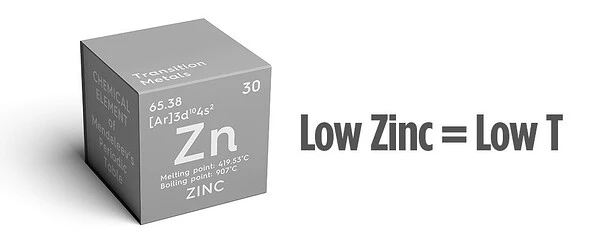Signs and Symptoms of Zinc Deficiency
Zinc deficiency can significantly impact testosterone levels, yet this is merely the tip of the iceberg. Here are the aspects that demand attention.
The Inadequacy of the RDI System
Relying on the Recommended Dietary Intake (RDI) system presents challenges. While the RDI offers guidelines for nutrient intake, its primary focus is on preventing deficiencies. For instance, when considering vitamin D, the RDI stipulates an amount just sufficient to prevent bone loss, largely overlooking the potential benefits of higher intake.
Regarding zinc, the RDI suggests that men require approximately 14 mg per day, and women around 8 mg. However, real - world dietary factors deviate from these simplistic calculations. For example, even if one meets the RDI for zinc, the consumption of plant - based foods can pose an issue. Plants contain phytates that bind to zinc, hindering its absorption.
Factors Contributing to Zinc Loss
Sweating and Exercise: Increased sweating leads to greater zinc loss. High - intensity exercise further exacerbates this, as it also increases zinc excretion through urine and feces. Weightlifting, for example, demands more zinc compared to a sedentary lifestyle. The muscle - damaging process during weightlifting necessitates additional zinc for recovery, as the body rebuilds muscles to be larger and stronger.
Aging: As individuals age, the efficiency of zinc absorption decreases.
Alcohol and Medications: Alcohol consumption interferes with zinc absorption. Additionally, high - blood - pressure medications, antacids, and antibiotics can also impede the body's ability to absorb zinc.
In essence, meeting the RDI for zinc does not guarantee an adequate zinc status. Let's explore the symptoms of zinc deficiency and strategies to address this issue.
Symptoms of Zinc Deficiency
Hormonal and Libido - related
Low Testosterone: Zinc is integral to the proper functioning of the Hypothalamic - Pituitary - Gonadal (HPG) axis, which regulates testosterone production. It aids in the synthesis and release of luteinizing hormone (LH), which prompts the testes to produce testosterone. Zinc also directly participates in the conversion of cholesterol to testosterone and helps maintain the balance between testosterone and estrogen. Insufficient zinc can lead to increased aromatase activity, converting testosterone (T) to estrogen (E). Studies have shown that restricting zinc intake in young men results in a significant decline in testosterone levels. Conversely, zinc - deficient older men experienced an increase in testosterone when supplemented with zinc.
Low Libido, Especially in Women: Research indicates that when zinc - deficient women supplemented with zinc, their testosterone levels nearly doubled, leading to enhanced sexual satisfaction.
Physical Manifestations
Hair Loss: Zinc is essential for maintaining the health of hair follicles.
Weakened Immune Function: Characterized by an increased susceptibility to infections and prolonged recovery times.
Delayed Wound Healing: Cuts take longer to heal.
Skin Problems: Manifesting as dry, flaky skin, eczema, rashes, etc.
Loss of Appetite: Zinc deficiency can lead to a reduction in appetite.
Cognitive and Mood - related
- Cognitive, Behavioral, and Mood Issues: Zinc is crucial for optimal brain function. Deficiencies are associated with poor concentration, memory problems, irritability, depression, and anxiety.
Other Symptoms
- Impaired taste and smell, eye problems, and diarrhea.
Strategies to Address Zinc Deficiency
While consuming oysters daily is an effective way to boost zinc levels, it is not a practical solution for most. Alaskan crab ranks second in zinc content, followed by red meat. Seeds and legumes contain zinc, but their bioavailability is low due to their plant - based nature. Even with a diet rich in zinc - containing foods, the aforementioned challenges such as zinc loss through sweat, exercise - induced recovery needs, and phytate binding persist.
Supplementation is a reliable approach, but it is essential to use chelated zinc. Chelation involves binding minerals to amino acids, facilitating easy absorption and circumventing the phytate - binding problem. The Albion process is considered the gold - standard for chelation.
Elitepro Vital Minerals (available for purchase on Amazon) contains 30 mg (more than double the RDI) of chelated zinc using the Albion process. In addition to zinc, Elitepro also includes magnesium and other minerals commonly deficient in athletes and weightlifters.
Zinc Deficiency: The Testosterone Killer
•
Author: Gareth Sapstead
•
fitness
sport
life

Share this article
